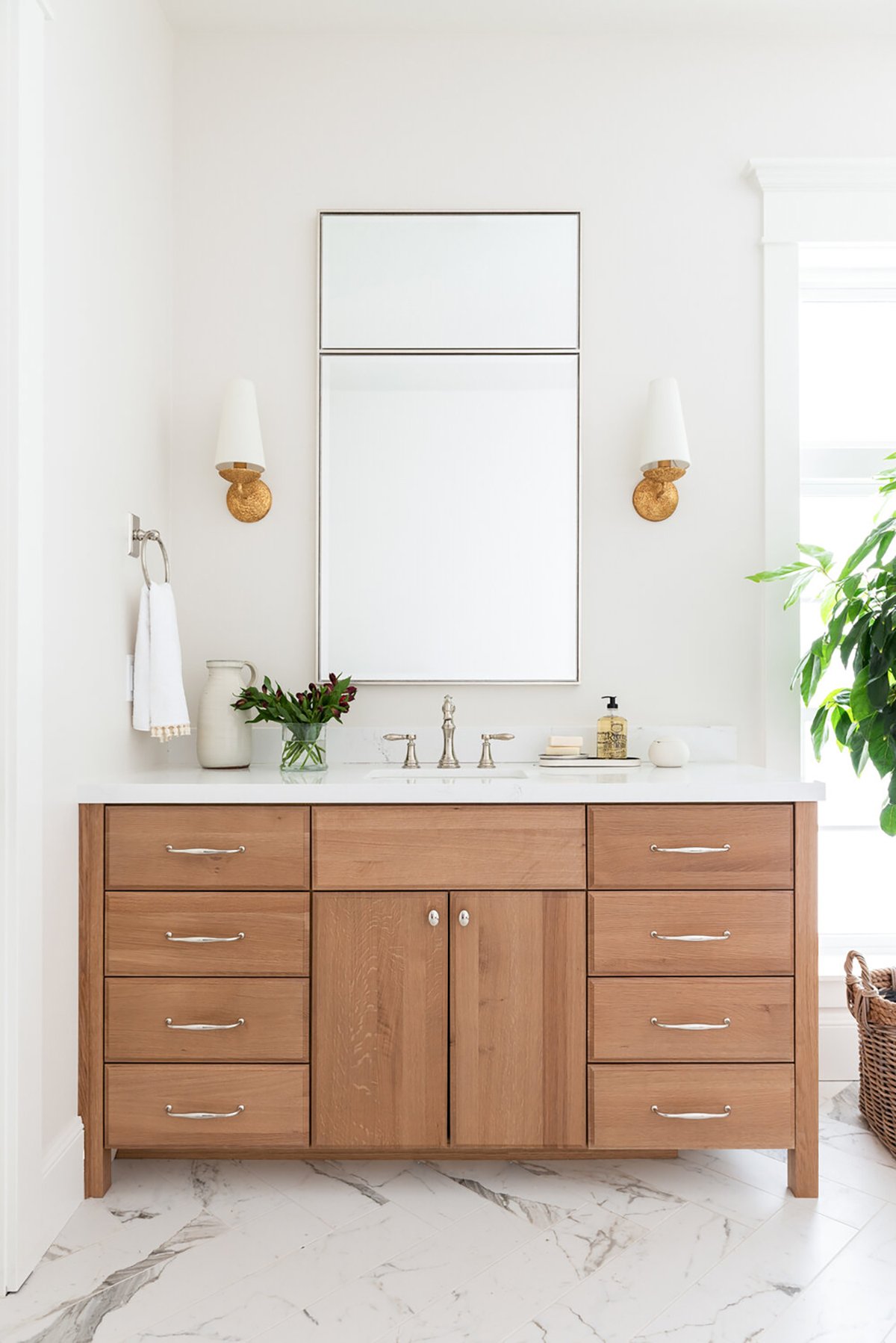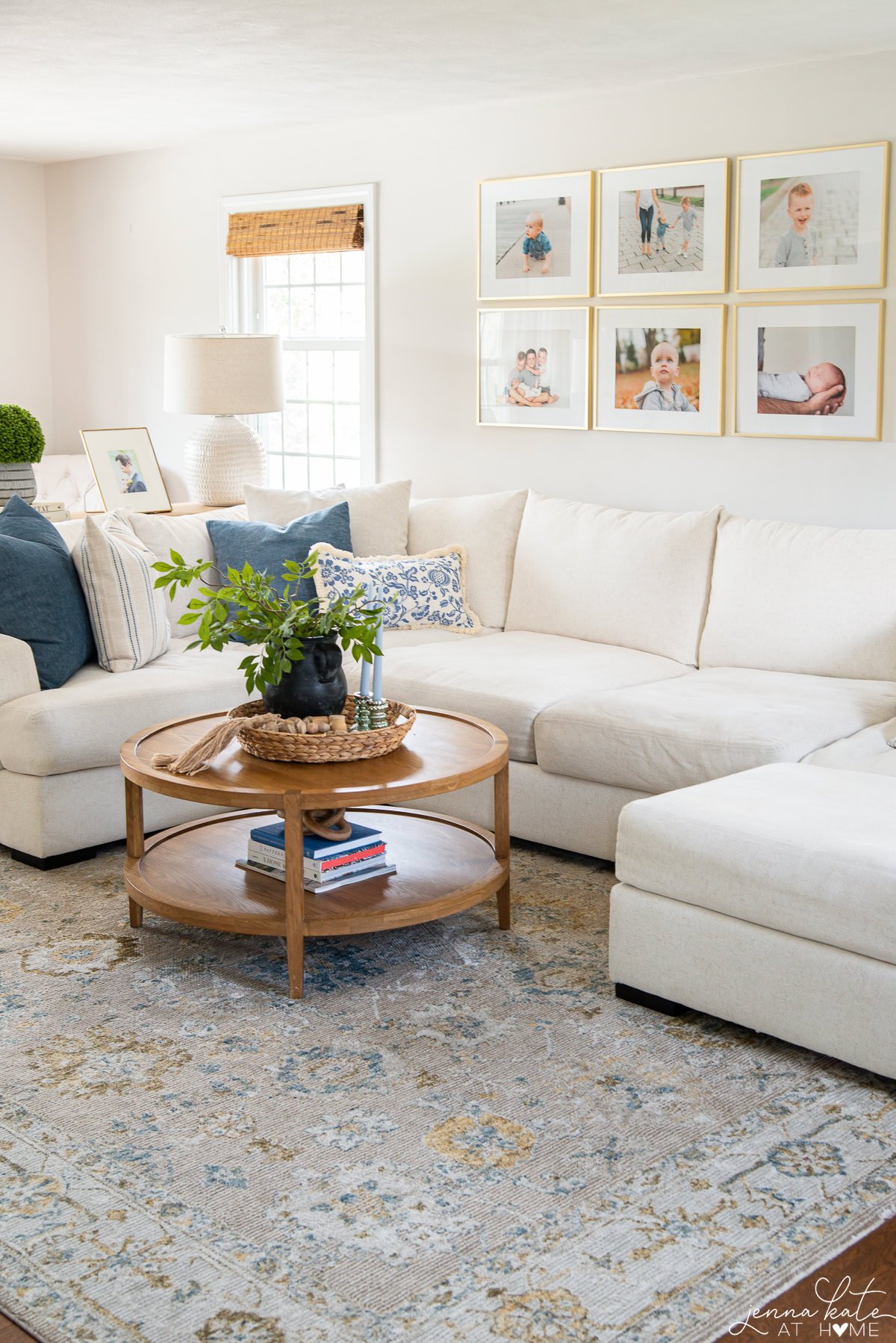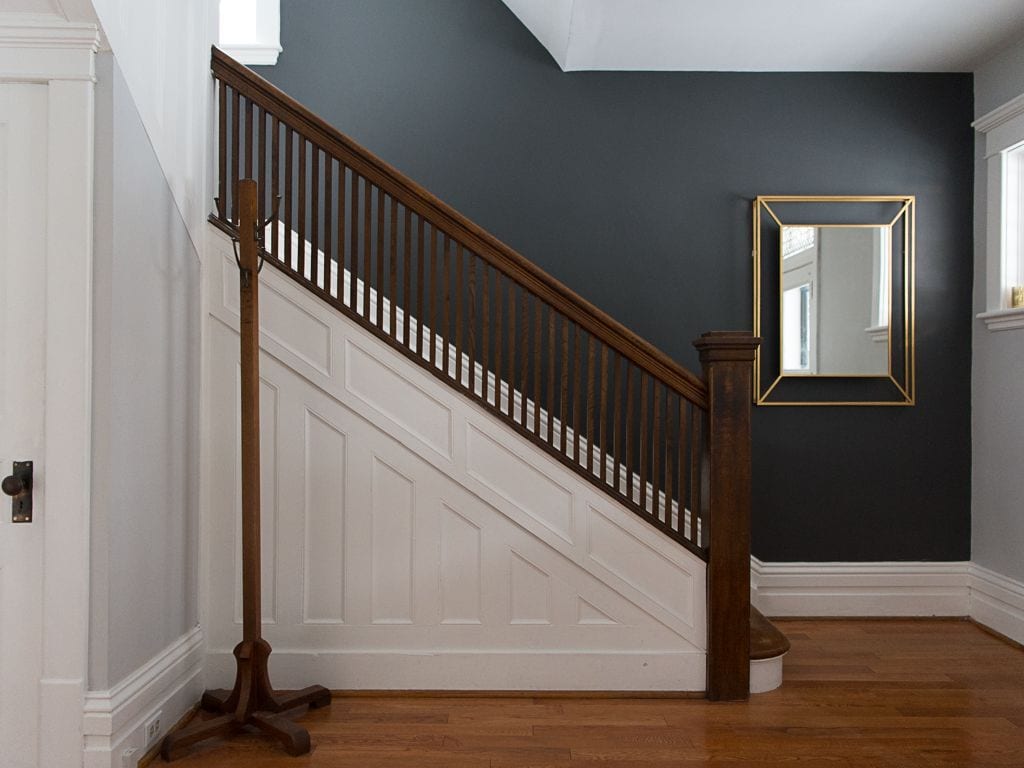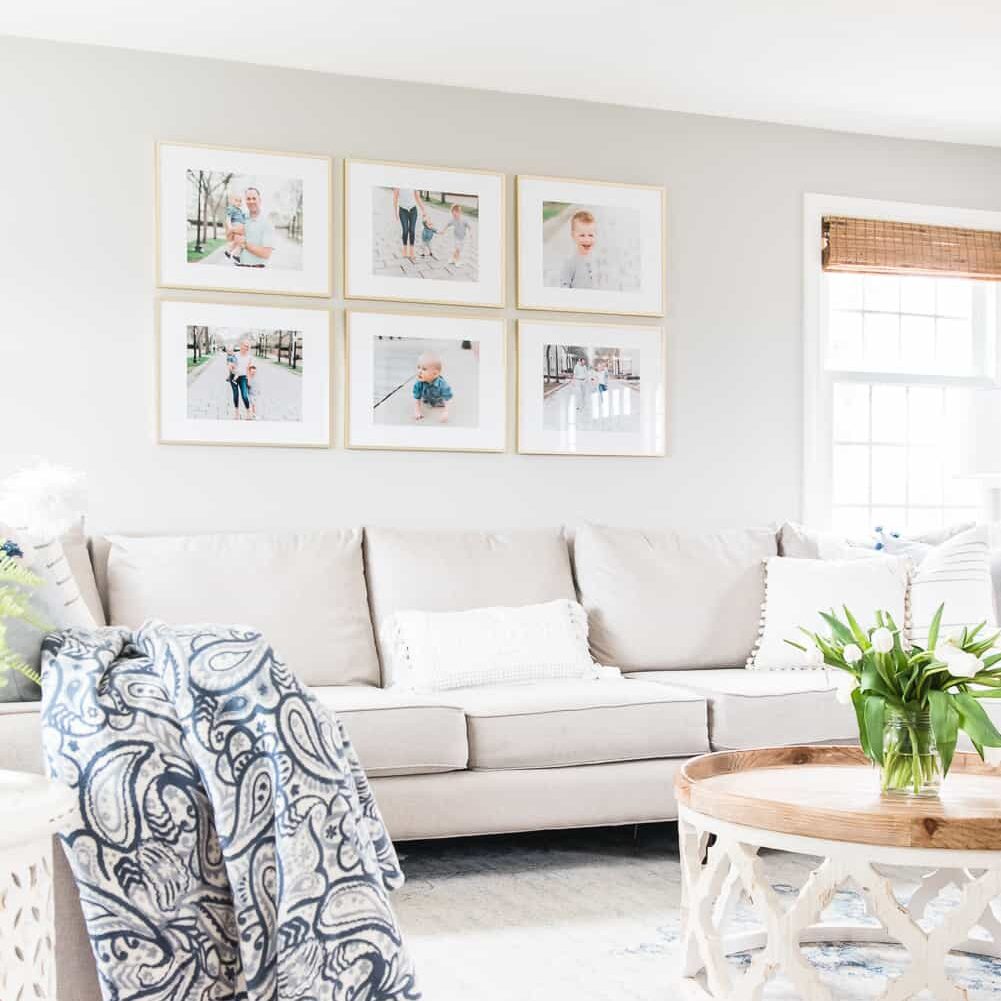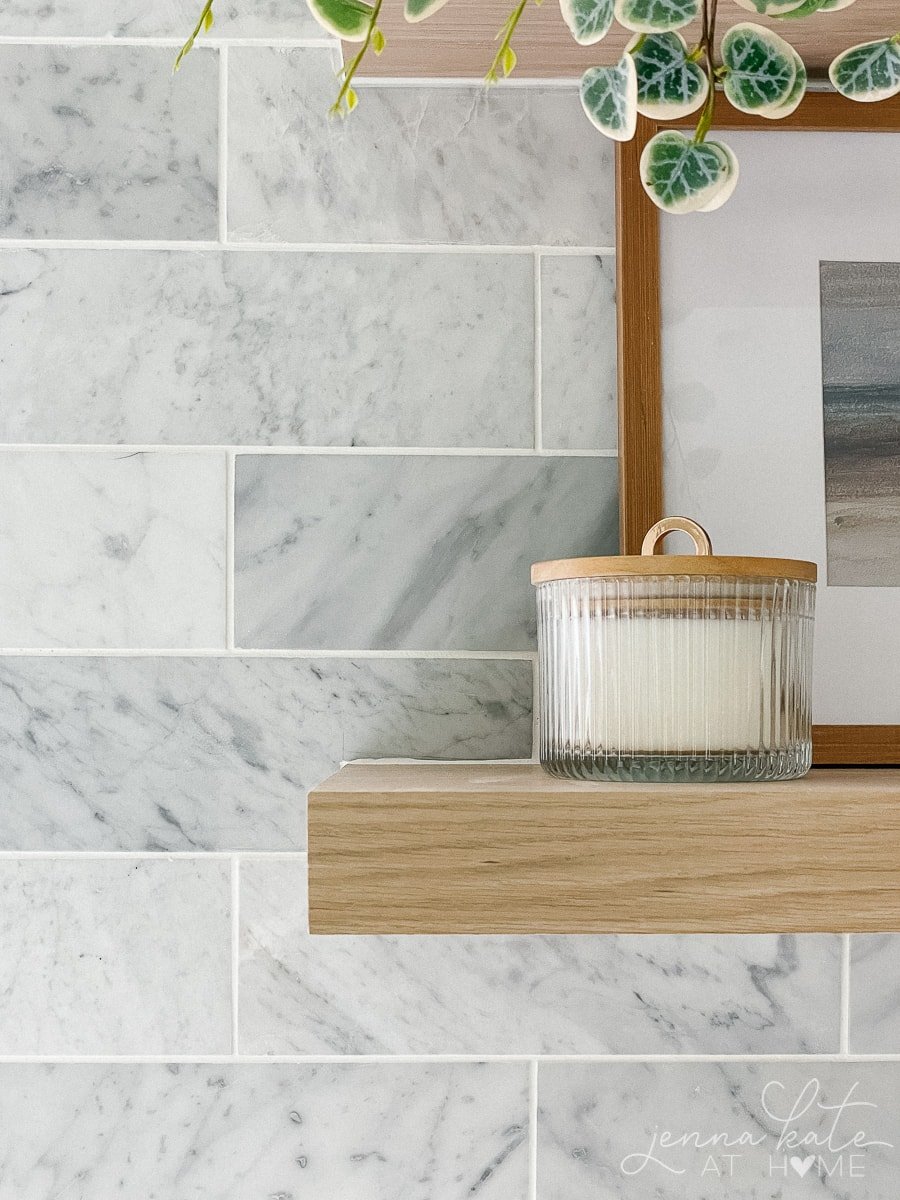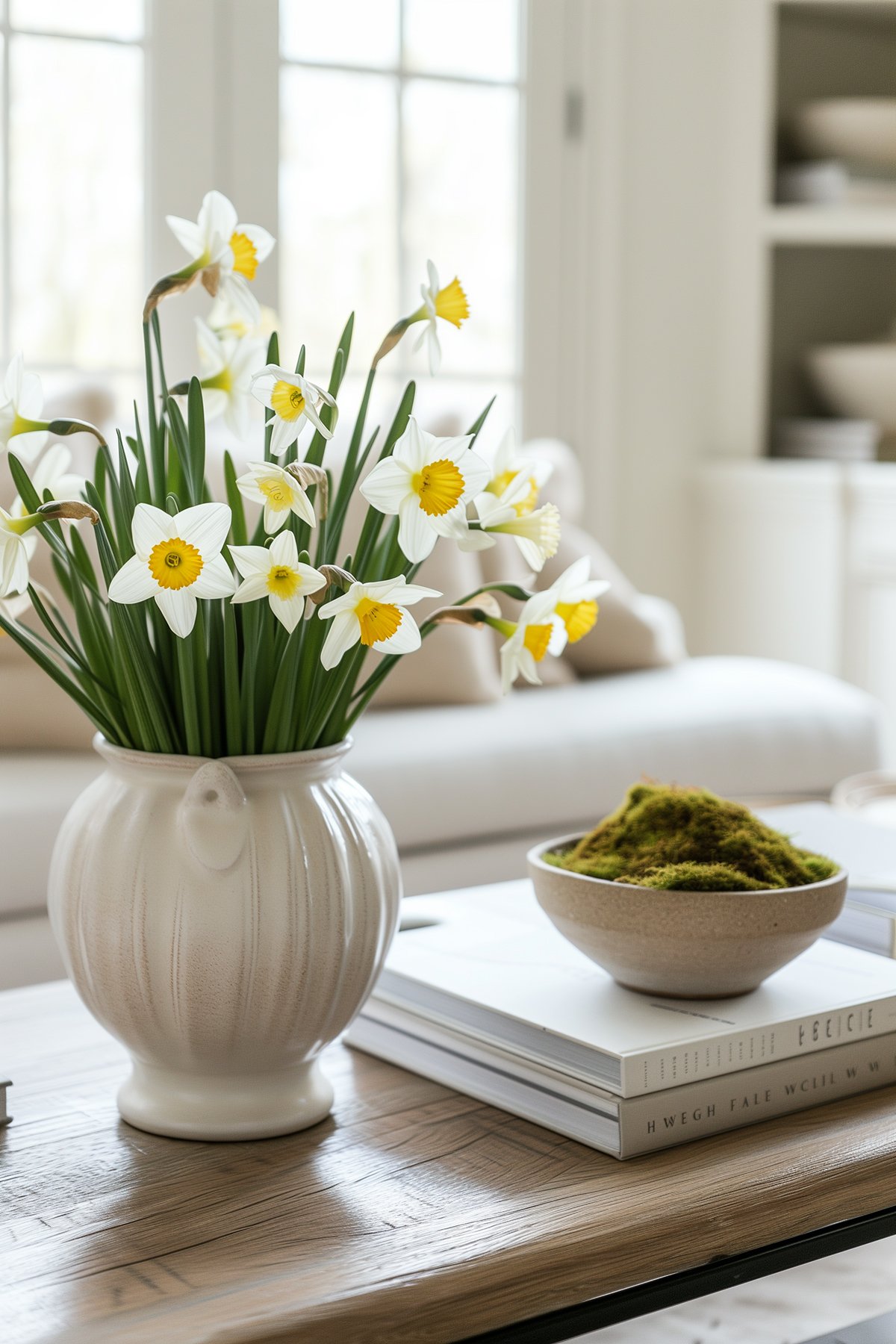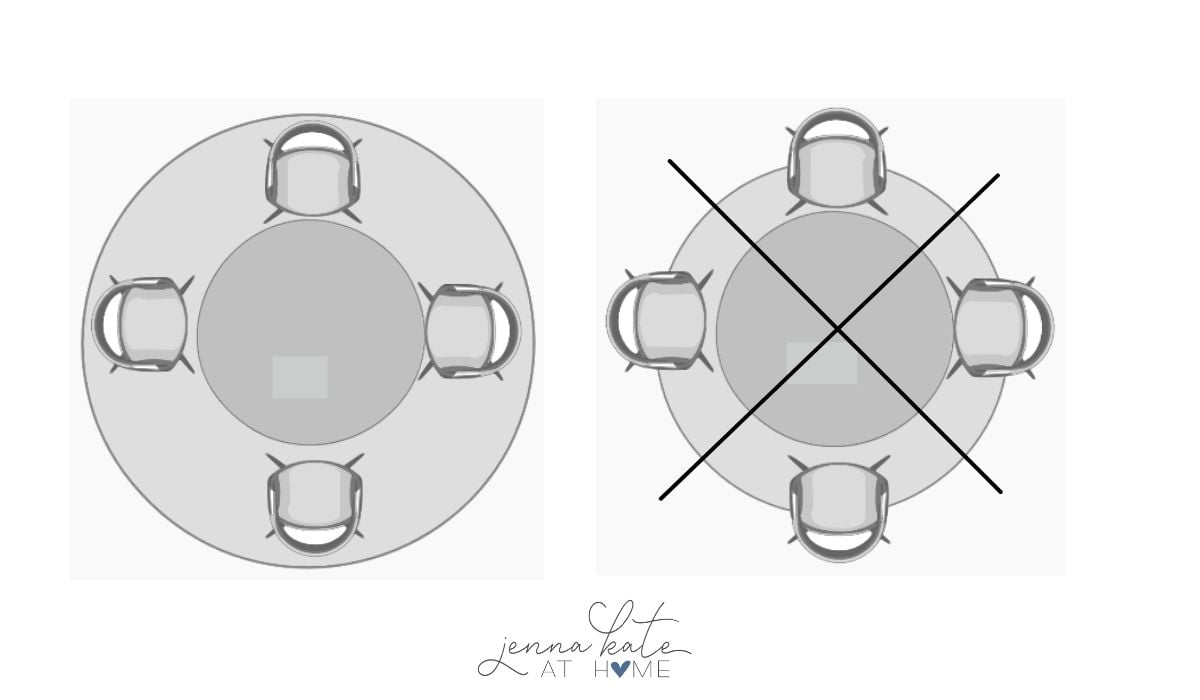Content may contain affiliate links. When you shop the links, I receive a small commission at no cost to you. Thank you for supporting my small business.
In refining the feng shui of our bedrooms, we’re not just rearranging furniture; we’re tapping into the ancient Chinese practice of creating balance and harmony within our living spaces.
As a home decorator with an interest in this millennia-old wisdom, I’ve learned that every element and placement within our bedrooms can significantly impact our sleep quality, health, and overall well-being.
If you think it all sounds like nonsense, give it a try and I promise you that you will find that your bedroom just feels better, that it flows better, and that you’re more at peace in general!
Feng Shui Principles to Follow
1. Solid Wall Support
Positioning your bed against a solid wall is foundational in bedroom feng shui. This placement offers stability, support, and protection, ensuring a restful night’s sleep.
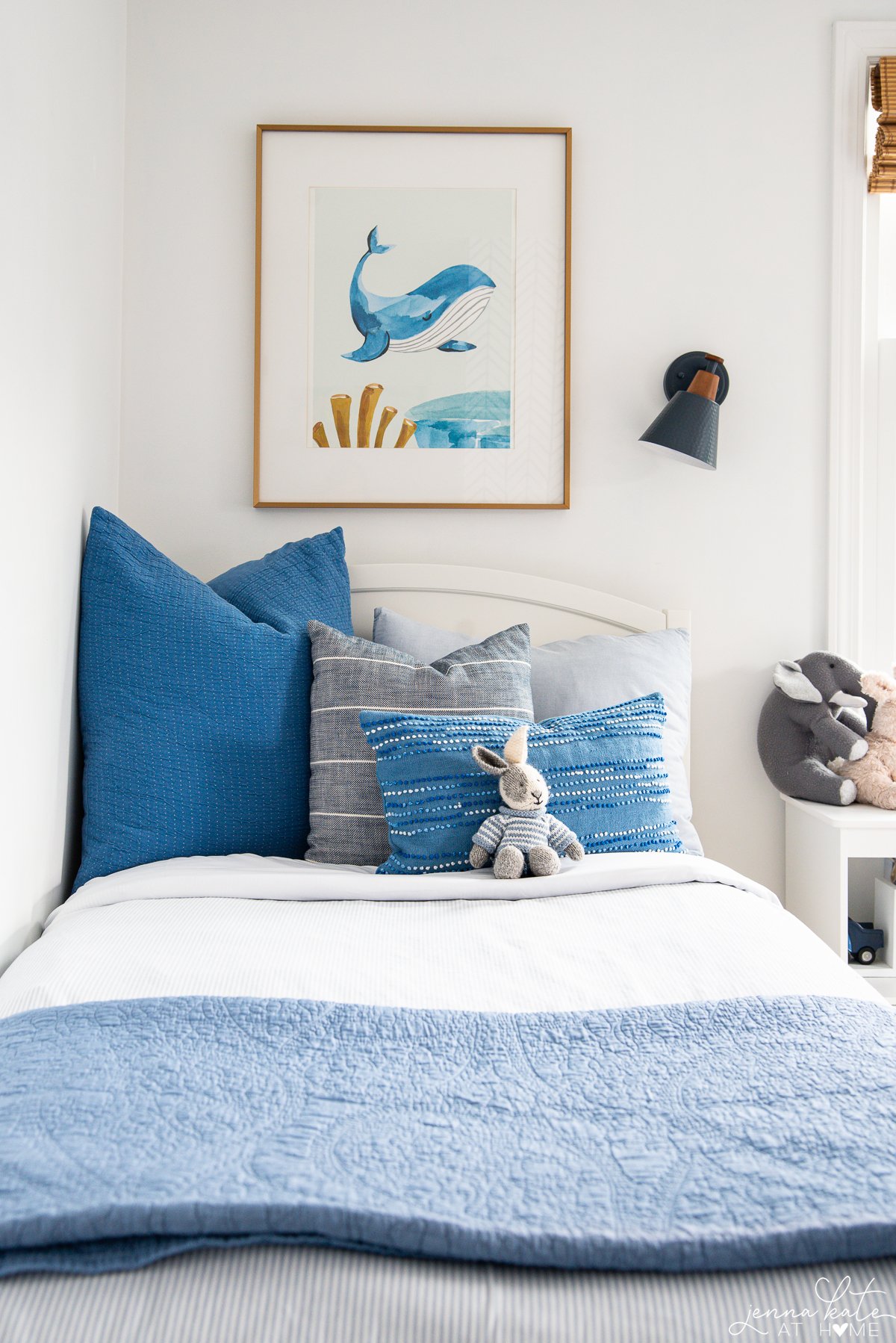
It symbolizes strength and anchors the energy around your bed, providing a cocoon of positivity and blocking negative energy.
2. Avoiding Negative Energy
Feng shui practitioners advise against placing the bed on the same wall as the door or directly opposite it, a position known as the “death” or “coffin” position. This layout can invite negative energy, creating unrest and discomfort. Instead, opt for a command position that allows you to see the entry door without being in direct alignment with it, fostering a sense of safety and calm.
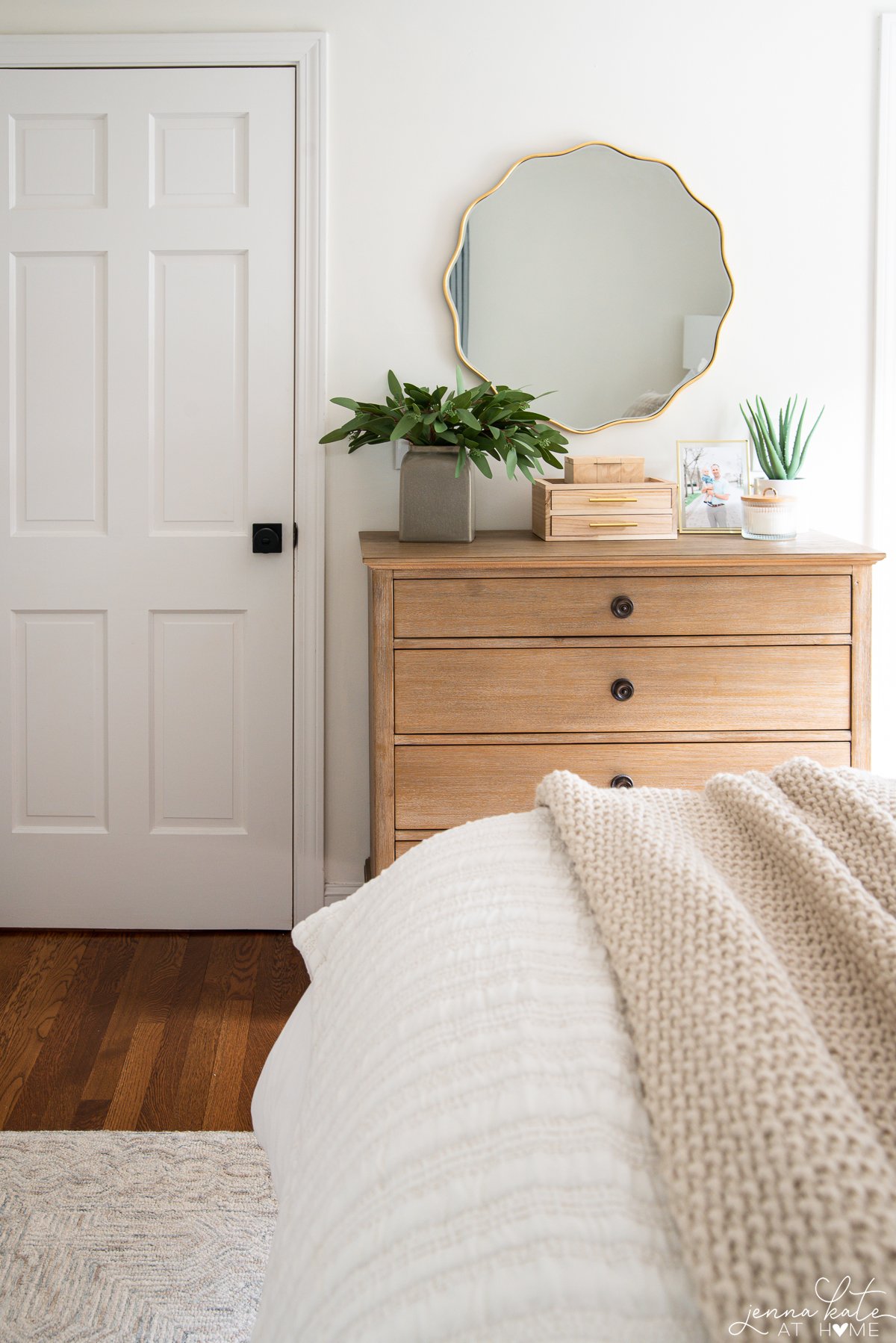
3. The Importance of the Bed’s Side
Accessibility to both sides of the bed is crucial for balanced energy flow and harmony, particularly for couples.
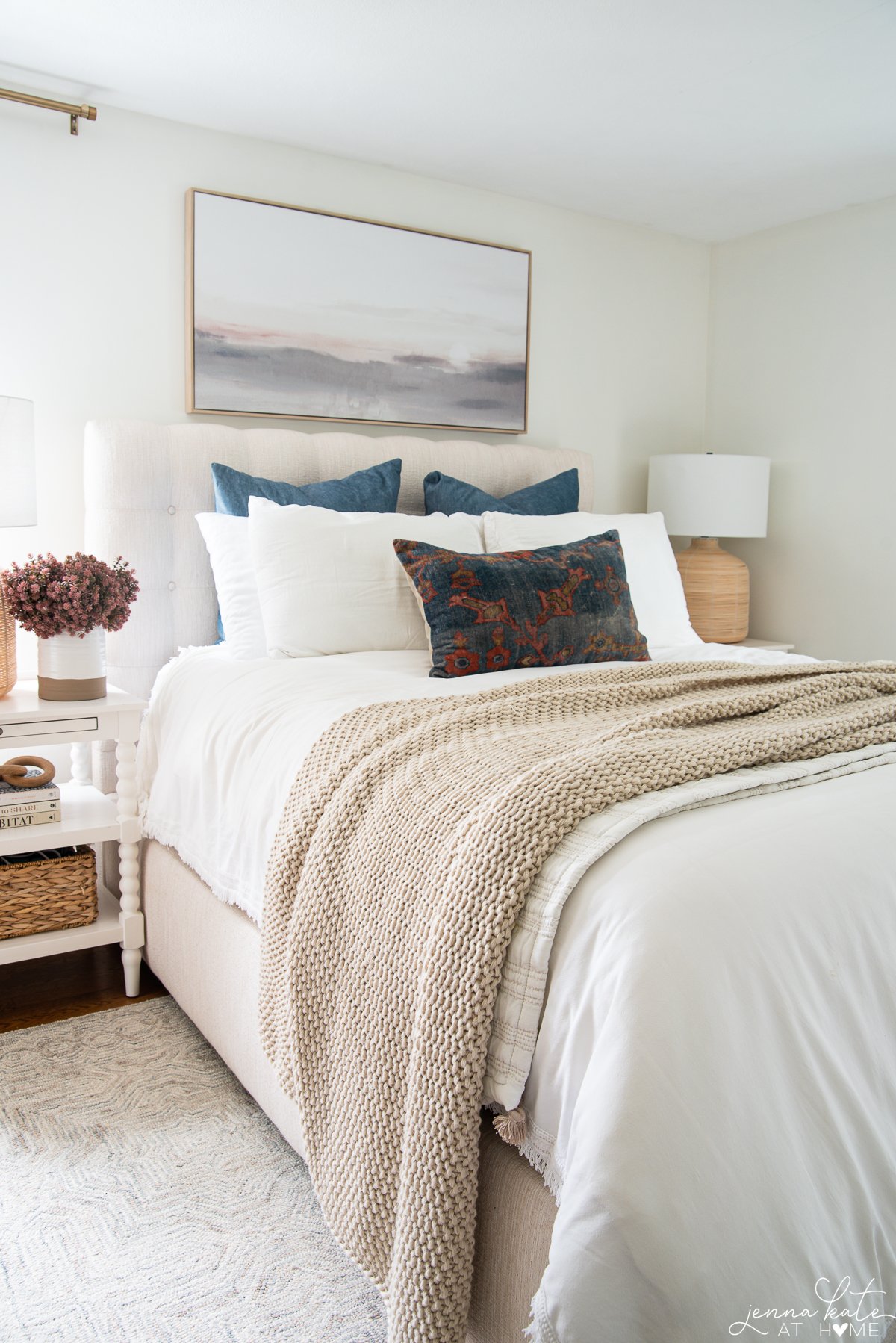
Ensure that each side of the bed has its own bedside table and lamp, promoting equal energy and opportunity for both partners. This arrangement supports a balanced relationship and personal space.
4. Water Features and Feng Shui
While water elements like fish tanks or water features are often used to attract good luck and abundance in other areas of the home, they’re considered bad feng shui in the bedroom. The movement of water can disrupt the calm, still energy desired in a sleeping environment, potentially leading to unrest and negative dreams.
5. Air Quality and Natural Elements
Good air quality and the presence of natural elements are pivotal for a harmonious bedroom environment. Ensure fresh air flow through windows and use air-purifying plants to enhance the life force energy (Qi) in the room. Incorporating natural materials and colors can also strengthen the earth element, promoting stability and grounding energy.
6. Feng Shui Bedroom Layout and Colors
A thoughtful feng shui bedroom layout, coupled with the right choice of colors, can significantly influence the room’s energy.
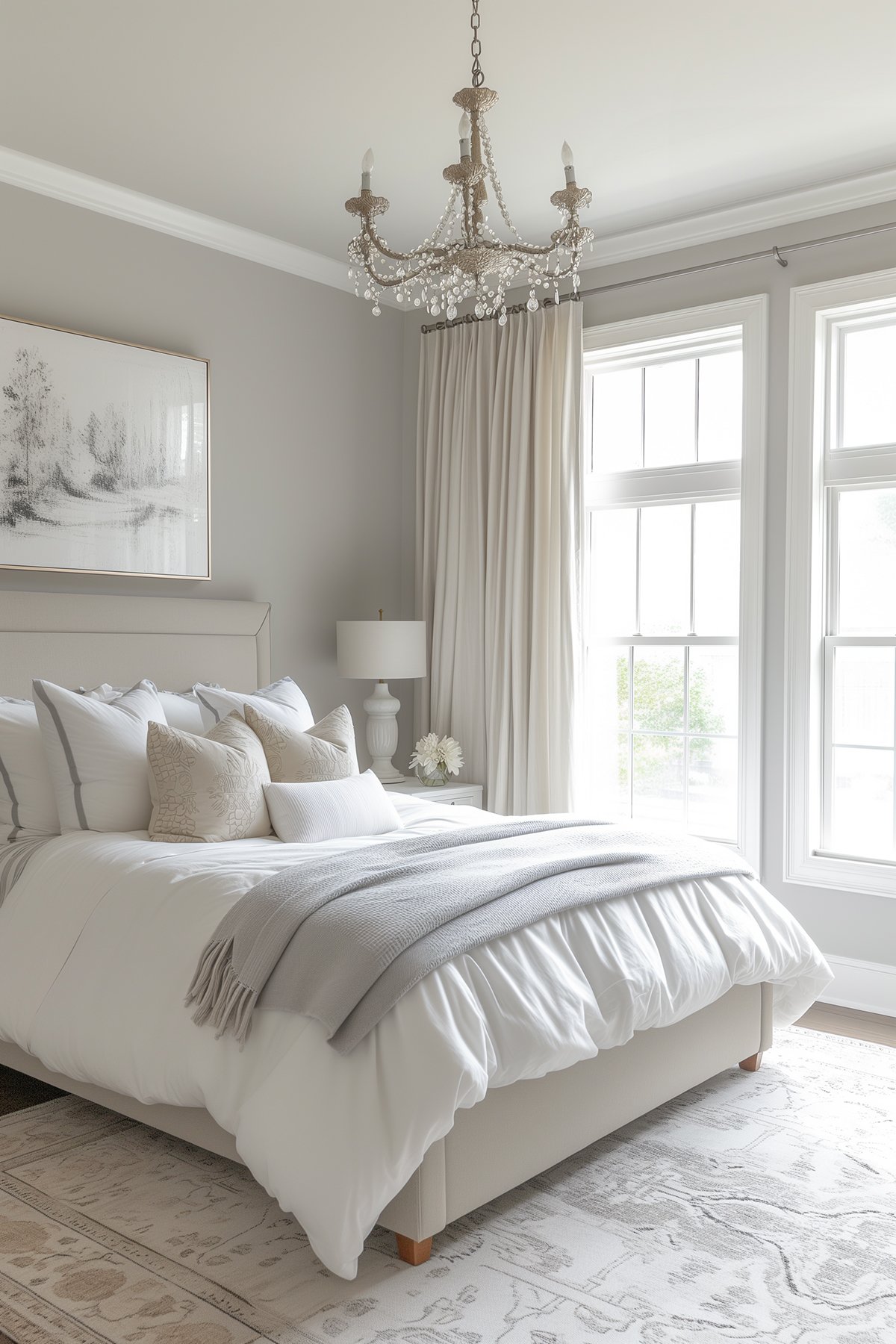
Soft lighting, soft textures in bedding and curtains, and the use of earthy or neutral colors contribute to a serene and nourishing sleeping environment. Bright, vibrant colors should be used sparingly, as they can stimulate the mind and disrupt sleep.
7. Electronic Devices: A Feng Shui Perspective
From a feng shui perspective, electronic devices are a source of electromagnetic fields that can disturb the natural flow of energy and negatively affect our health and sleep patterns. Keeping these devices out of the bedroom, or at least turning them off before sleep, can improve the room’s energy and your quality of sleep.
Final Thoughts
Incorporating the principles of feng shui into your bedroom design isn’t just about following rules; it’s about creating a space that aligns with your energy and supports your well-being. As someone totally new to the art of Feng Shui, I’ve experienced firsthand how these adjustments can transform a space from merely a place of rest into a source of rejuvenation, peace, and good health. It’s amazing how a few little changes can really impact you!
Feng shui is more than an ancient Chinese practice; it’s a way to thoughtfully design our living spaces to enhance our lives. By considering the placement of furniture, choosing the right colors, and minimizing negative energy, we can create a bedroom that not only promotes a good night’s sleep but also fosters a deeper sense of harmony and well-being.

